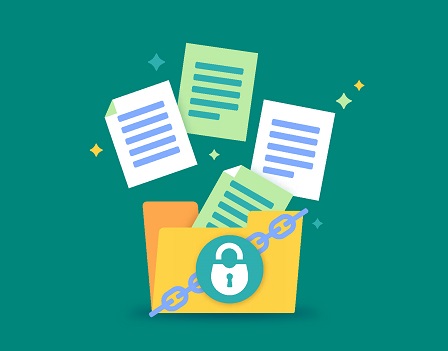
As the days, weeks, and months start to run together, we’ve found more and more time on our hands around the house. This “downtime” is a great opportunity to connect with family and loved ones, but it’s also an opportunity to organize the important documents that make up your financial life.
What to Keep and Where to Keep It
If you conduct an online search of “how to get financially organized,” most sources will tell you to keep an organized filing system of documents. That may have been the best solution 15 or 20 years ago, but more secure and efficient solutions exist today. Cloud-based storage systems and external hard drives are two great examples. Having your critical documents electronically filed will help you share these documents with trusted advisors, eliminate the paper trail, and clear the clutter from your home or office.
So, what items are critical to keep permanently, and what can be shredded? Below is a checklist for you and your family to work through, covering the critical documents that make up your financial life.
Documents to Save Permanently
- Vehicle titles
- Loan documentation / mortgage documents
- Releases from all loans (ex: homes, cars, student loans)
- Real estate deed(s)
- Tax returns for all years (see below for more information)
- Receipts for jewelry and other valuables
- Medical records
- Birth and death certificates
- Social Security cards
- Pension plan documents
- Passports
- Marriage licenses
- Final divorce agreement
- Business licenses
- Copies of all current insurance policies (ex: health, homeowners, auto, umbrella, life, disability, long-term care)
- Estate planning documents (ex: wills, powers of attorney, and trust documents)Military records, including discharge papers
- Closing documents for home purchases and sales
- Home improvement records to establish your basis
- Receipts for all major purchases in case of theft or fire (appliances, furniture, artwork, antiques, and collectibles)
Documents to Save for Seven Years
The IRS has three years from the filing date to audit your returns, plus they can go back an additional three years if they find a substantial error within a filing1. Thus, we suggest a seven-year holding schedule for all supporting documentation, including but not limited to:
- Canceled checks
- Receipts for charitable donations
- Deductible medical expenses
- Health Savings Account expense documentation
Documents to Save for Just One Year
- Latest Social Security statement
- Annual life insurance summary statement
- Retirement plan benefits statements
- Annual investment summary
Documents to Shred
As with any spring-cleaning project, part of the satisfaction comes from organizing what is needed, and part of the satisfaction comes from removing what’s not. Below is a checklist of items that you can (and should) shred.
- Any documents that don’t fit into the categories above that contain your personal information such as name, address, date of birth, Social Security number, account numbers, and banking information
- ATM receipts
- Expired credit cards, visas, state IDs or passports
- Monthly investment statements (as an SWP client, you can access investment statements online for the last ten years)
- Trade confirmations (as long as trade details are captured on your account statements)
Every spring, we host a shredding event to help our clients with their spring cleaning. While we were not able to hold it this spring due to the pandemic, we are hopeful we can host it again next year. You can read the recap of the 2019 event here.
Managing Passwords
The final step is to consider how to manage and protect your passwords. You can be using the best cloud-based storage system in the world, but that doesn’t matter much if a hacker has access to your username and password.
By adding complexity to a hacker’s mission, you may divert them to an easier target, and it is strongly recommended to use randomly generated passwords for your online logins. You may think it’s impossible to remember all of those complex passwords… and we agree!
There are a number of password managers that allow you to randomly generate passwords and store your credentials securely. You can also enable two-factor authentication to access your passwords for an added layer of security. And perhaps just as valuable, having all of your logins in one place makes it easy for you to share everything with your spouse or children, if necessary.
Final Thoughts
We know that the last several months have been incredibly challenging for you and your family. The team at Strategic Wealth Partners is here to support you, so if organizing your important financial documents is on your to-do list, please don’t hesitate to reach out.
1. https://www.irs.gov/businesses/small-businesses-self-employed/how-long-should-i-keep-records

